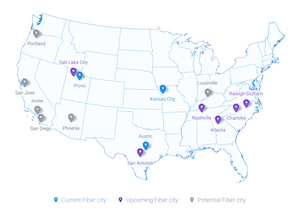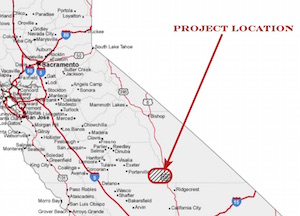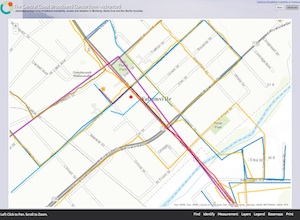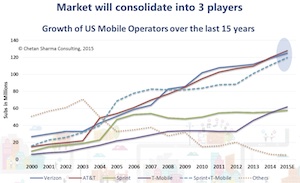Google Fiber adds two California cities to the prospect list

Click for a larger version.
Irvine and San Diego join San Jose (and surrounding Silicon Valley communities) as possible expansion targets for Google Fiber. The announcement, which was made in a blog post, also included Louisville, Kentucky.
All three are now “potential fiber cities”, which means that Google Fiber intends to talk with local officials about what’s needed to move it up the classification list to “upcoming fiber city”…
… MoreOur next step is to begin a joint planning process with city leaders, just as we did when we began working with nine metro areas last year.




![By 2010-06-05-lueneburg-by-RalfR-10.jpg: Ralf Roletschek (talk) - Fahrradtechnik auf fahrradmonteur.de derivative work: Aʁsenjyʁdəgaljɔm11671 (2010-06-05-lueneburg-by-RalfR-10.jpg) [GFDL 1.2 (https://www.gnu.org/licenses/old-licenses/fdl-1.2.html)], via Wikimedia Commons](https://www.tellusventure.com/images/2015/7/unicorn-statue.jpg)
![By Tolerancezero at en.wikipedia [Public domain], from Wikimedia Commons](https://www.tellusventure.com/images/2015/7/soledad_city_limits.jpg)
![Susanne Kauz [CC BY-SA 4.0 (https://creativecommons.org/licenses/by-sa/4.0)], via Wikimedia Commons](https://www.tellusventure.com/images/2015/8/banana_peels.jpg)


![By Visitor7 (Own work) [CC BY-SA 3.0 (https://creativecommons.org/licenses/by-sa/3.0)], via Wikimedia Commons](https://www.tellusventure.com/images/2015/8/orlando_convention_center.jpg)